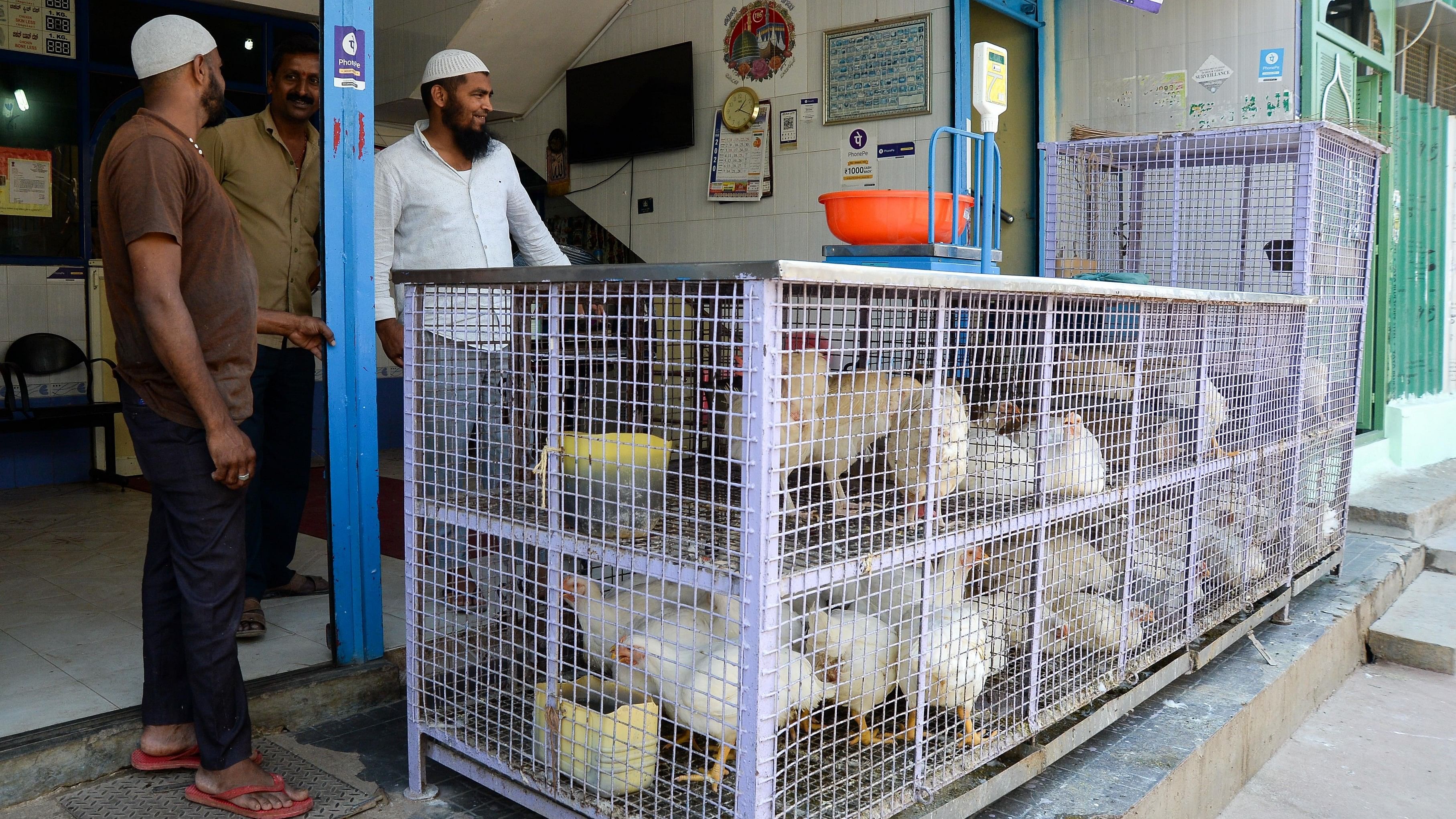
Extreme heat is reducing the life expectancy of chickens.
Credit: DH FILE PHOTO
Bengaluru: For the first time, chicken prices have crossed Rs 300 due to high consumption, extreme weather conditions and increased feed costs.
Vendors predict prices may rise further in the coming days.
In Bengaluru, a kilogram of skinless chicken is retailing for between Rs 300 and Rs 350, compared to Rs 220-280 a few weeks ago. Broiler chicken with skin on is selling for Rs 280, up from Rs 200-220.
Live chicken is priced between Rs 156 and Rs 157 per kilo in the wholesale market and Rs 180 to Rs 200 in the retail market.
Poultry farm owners say that extreme heat is reducing the life expectancy of chickens, driving up prices.
Explaining the reasons for the sudden price increase, S R Kumaraswamy, who runs Karthik Poultry Farm in Srinagar, said that about 30% of chicks die within two weeks of birth due to their inability to adapt to extreme temperatures.
"The temperature in the past two months was too extreme for chicks to survive. Usually, 45 days after birth, the chicks would weigh at least two kg. But this year, it was too hard for them to eat adequate amounts of feed served to them. Many chicks in my farm died because of this," he said.
According to a vendor at BTM Poultry and Sea Foods, while chicken prices stabilised between Rs 200 and 220 after the pandemic, they have now shot up like "never before".
Another vendor at Shaheed Poultry Centre Private Limited, Russel Market, believes prices will increase further in the coming week.
Satish Babu, Mysuru Zonal Chairman of the National Egg Co-ordination Committee (NECC), said, "While higher temperatures are the primary reason chicks could not survive, another reason for higher mortality is the Ranikhet or Newcastle disease, which is viral and affects a large number of chickens if one is infected. Higher mortality of chickens this summer is a common concern even in neighbouring states like Tamil Nadu and Kerala.”
He added that the price of ingredients for chicken feed had also increased. Maize, a key ingredient in chicken feed, is priced at Rs 26,500 per tonne while soya costs Rs 46,000 per tonne. The supply of broken rice, extensively used in chicken feed production, is very low compared to previous years. A large quantity of broken rice is now supplied to ethanol industries.
D K Kantharaj, a former chairman of Karnataka Co-operative Poultry Federation Limited, said prices would come down only after 45 days.